13 start with M start with M
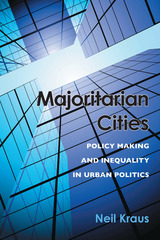
Neil Kraus evaluates both the influence of public opinion on local policy-making and the extent to which public policy addresses economic and social inequalities. Drawing on several years of fieldwork and multiple sources of data, including surveys and polls; initiatives, referenda, and election results; government documents; focus groups; interviews; and a wide assortment of secondary sources, Kraus presents case studies of two Midwestern cities, Minneapolis, Minnesota, and Gary, Indiana. Specifically, he focuses on several major policy decisions in recent decades concerning education, law enforcement, and affordable housing in Minneapolis; and education and riverboat casino development in Gary.
Kraus finds that, on these issues, local officials frequently take action that reflects public opinion, yet the resulting policies often fail to meet the needs of the disadvantaged or ameliorate the effects of concentrated poverty. In light of citizens’ current attitudes, he concludes that if patterns of inequality are to be more effectively addressed, scholars and policymakers must transform the debate about the causes and effects of inequality in urban and metropolitan settings.
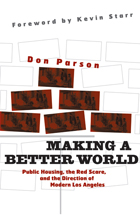
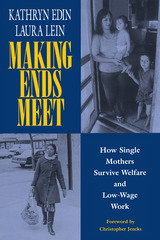
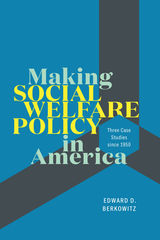
Written in an accessible style and using a minimum of academic jargon, this book illuminates how three of our most important social welfare programs have come into existence and how they have fared over time.
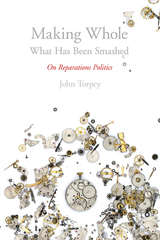
Viewing the search for “coming to terms with the past” as a form of politics, John Torpey argues that there are major differences between reparations for the living victims of past wrongdoing and reparations for the descendants of such victims. More fundamentally, he argues that claims for reparations comprise a relatively novel kind of politics that involves a quest for symbolic recognition and material compensation for those seeking them—through the idiom of the past rather than the present. This reissue is the first paperback edition and contains a new preface by the author.
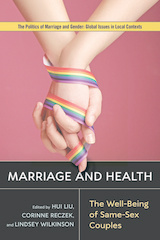
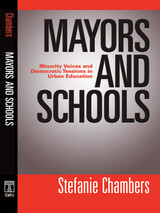
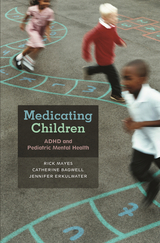

Has liberalism lost its way--or merely its voice? This book by one of the nation's most insightful, articulate, and powerful Democrats at last breaks the silence that has greeted the Republican Party's revolution of 1994. When voters handed Democrats their worst defeat in 100 years, New Yorkers returned Daniel Patrick Moynihan to the Senate for his fourth term. Amid the wreck of his party's control and the disarray of programs and policies he has championed for three decades, Senator Moynihan here takes stock of the politics, economics, and social problems that have brought us to this pass. With a clarity and civility far too rare in the political arena, he offers a wide-ranging meditation on the nation's social strategies for the last 60 years, as well as a vision for the years to come.
Because Senator Moynihan has long been a defender of the policies whose fortunes he follows here, Miles to Go is in a sense autobiographical, an exemplary account of the social life of the body politic. As it guides us through government's attempts to grapple with thorny problems like family disintegration, welfare, health care, deviance, and addiction, Moynihan writes of "The Coming of Age of American Social Policy." Through most of our history American social policy has dealt with issues that first arose in Europe, and essentially followed European models. Now, in a post-industrial society we face issues that first appear in the United States for which we will have to devise our own responses. Ringing with the wisdom of experience, decency, and common sense, Miles to Go asks "why liberalism cannot be taught what conservatives seem to know instinctively"--to heed the political and moral sentiments of the people and reshape itself for the coming age.

Pointing to the disparities between wealthy and impoverished school districts in areas where revenue depends primarily upon local taxes, reformers repeatedly call for the centralization of school funding. Their proposals meet resistance from citizens, elected officials, and school administrators who fear the loss of local autonomy.
Bryan Shelly finds, however, that local autonomy has already been compromised by federal and state governments, which exercise a tremendous amount of control over public education despite their small contribution to a school system's funding. This disproportionate relationship between funding and control allows state and federal officials to pass education policy yet excuses them from supplying adequate funding for new programs. The resulting unfunded and underfunded mandates and regulations, Shelly insists, are the true cause of the loss of community control over public education.
Shelly outlines the effects of the most infamous of underfunded federal mandates, the No Child Left Behind Act of 2001 (NCLB), and explores why schools implemented it despite its unpopularity and out-of-pocket costs. Shelly's findings hold significant implications for school finance reform, NCLB, and the future of intergovernmental relations.
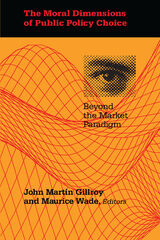
Combining philosophy with practical politics, an expanding area of policy studies applies moral precepts, critical principles, and conventional values to collective decisions. This evolving new approach to policy analysis asserts that the same variety of ethical principles available to the individual are also available to make collective decisions in the public interest and should be used.
Although policy analysis has long been dominated by assumptions originally developed for the examination of markets, such as efficiency, these essays by leading scholars - the best work done in the field over the past three decades - explore alternatives to the “market paradigm” and show how moral discrimination and choice can extend beyond the individual to encompass public decisions.
Chapters by John Martin Gillroy and Maurice Wade review the political philosophies of Immanuel Kant and David Hume as backgrounds for the development of modern concepts of public policy choice. They present this anthology as a first step in codifying options, arguments, and methods within this important developing area of policy studies.

The American fixation with marriage, so prevalent in today's debates over marriage for same-sex couples, owes much of its intensity to a small group of reformers who introduced Americans to marriage counseling in the 1930s. Today, millions of couples seek help to save their marriages each year. Over the intervening decades, marriage counseling has powerfully promoted the idea that successful marriages are essential to both individuals' and the nation's well-being.
Rebecca Davis reveals how couples and counselors transformed the ideal of the perfect marriage as they debated sexuality, childcare, mobility, wage earning, and autonomy, exposing both the fissures and aspirations of American society. From the economic dislocations of the Great Depression, to more recent debates over government-funded "Healthy Marriage" programs, counselors have responded to the shifting needs and goals of American couples. Tensions among personal fulfillment, career aims, religious identity, and socioeconomic status have coursed through the history of marriage and explain why the stakes in the institution are so fraught for the couples involved and for the communities to which they belong.
Americans care deeply about marriages—their own and other people's—because they have made enormous investments of time, money, and emotion to improve their own relationships and because they believe that their personal decisions about whom to marry or whether to divorce extend far beyond themselves. This intriguing book tells the uniquely American story of a culture gripped with the hope that, with enough effort and the right guidance, more perfect marital unions are within our reach.

In Muslims of Metropolis, Kavitha Rajagopalan takes a much needed step in personalizing and humanizing our understanding of the Muslim diaspora. Tracing the stories of three very different families-a Palestinian family moving to London, a Kurdish family moving to Berlin, and a Bangladeshi family moving to New York-she reveals a level of complexity and nuance that is seldom considered. Through their voices and in their words, Rajagopalan describes what prompted these families to leave home, what challenges they faced in adjusting to their new lives, and how they came to view their place in society. Interviews with community leaders, social justice organizations, and with academics and political experts in each of the countries add additional layers of insight to how broad political issues, like nationalist conflict, immigration reform, and antiterrorism strategies affect the lives of Muslims who have migrated in search of economic stability and personal happiness.
Although recent thinking about immigration policy in the United States and Europe emphasizes the importance of long-term integration, a global attitude that continues to sensationalize divisions between Muslim and other communities thwarts this possibility. Integration cannot occur with policy solutions alone-people must feel that they belong to a larger society. Whether read as simple stories or broader narratives, the voices in this revealing book are among the many speaking against generalization, prejudice, and fear that has so far surrounded Muslims living in the West.
READERS
Browse our collection.
PUBLISHERS
See BiblioVault's publisher services.
STUDENT SERVICES
Files for college accessibility offices.
UChicago Accessibility Resources
home | accessibility | search | about | contact us
BiblioVault ® 2001 - 2024
The University of Chicago Press









